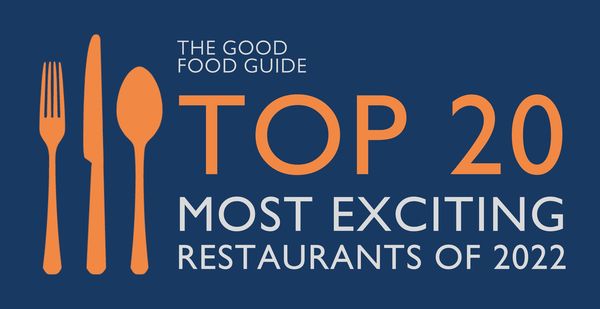Tim Hayward, the Financial Times’ restaurant critic, recently wrote a thought provoking piece in FT Weekend about the rise of amateur service in restaurants in Britain (The charming ineptitude of British hospitality). Do read his article, but to sum it up in a few words, Hayward essentially thinks it is something we are going to have to get used to and will need to embrace.
With my other business hat on (our sister company CODE Hospitality is a network for those working in the industry) I spend a lot of time looking at the intricacies of the hospitality industry, especially around staffing and recruitment. Good Food Guide readers will be well-versed in the impacts of Brexit on our restaurants, along with the repercussions of the pandemic and a general trend for people working from home.
While hospitality has never truly been recognised as a career in Britain, we are now competing with other industries where working remotely is the norm. Needless to say, that’s not an option if you work in a restaurant, pub, bar or hotel. Salaries, working hours and staff wellbeing are all things that we, in the industry, are working on. Yet hiring British workers into hospitality is still not an easy task. The exodus of professionals from Europe and further afield has hurt hospitality.
While I like Hayward’s attitude to embracing this situation and rolling with it, it really pains me to think we are having to settle for average service. I spend a lot of time eating in restaurants and the decline in service post Brexit and pandemic is noticeable. While a restaurateur should never let someone on the restaurant floor without some level of training (it’s not fair on that person ), I feel there now comes a level of expectation from diners. And sadly it is often the case that a lot of people are not now being trained. A recent example: when ordering a martini at a reputable place in London I was asked if I wanted a single or double…
While rudeness as a customer is a big no – a person's interaction with a waiter or waitress is a good sign as to what they’re like as a person – when you're paying (as we are now) £20 for starters and £45 for main courses now, we must have a base level of service. Menus arriving promptly without being asked for, your order put down in front of you instead of your guest, and check backs should be the basics.
Restaurants and hotels in a city are a great soft power tool. When visiting a city you get a good feeling of that place based on the level of service you get. Whether it’s grabbing a morning coffee, checking into a hotel, perched at a bar waiting for a drink or even speaking to a taxi driver – good service can leave a far longer impression of somewhere than many other things.
There’s no overnight answer to how we sort out service in restaurants and I know many will say that is the not the customer's job. Perhaps not, but as diners we must not only remember to be kind but remember this is a career, a great one at that too, and that should be respected. After all, you want good service don’t you?








